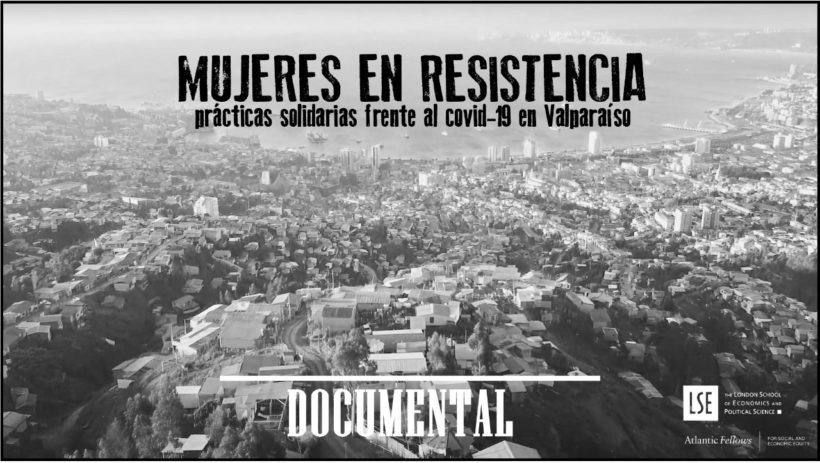Anita Peña Saavedra, researcher at the Diego Portales University and Atlantic Fellows for Social and Economic equity at LSE, lesbo-feminist activist and former executive director of Miles, Alondra Castillo, feminist and academic at the University of Valparaiso, Magdalena Rodríguez, feminist and sociologist, independent researcher and Camila Rodó, feminist, member of “Nosotras Audiovisuales” are part of the team of the documentary “Mujeres en resistencia en tiempos de COVID 19” (Women in resistance in times of COVID 19).
In times of health crisis, the “ollas comunes”, community work spaces supported mostly by women, have proliferated once again. Anita Peña, former director of Miles, carried out the research “Women’s solidarity networks to confront COVID-19: the case of Valparaíso, Chile”, which made visible networks of women settlers in the fifth region, where 47 women between 20 and 81 years of age from Valparaíso were interviewed, who later gave life to this documentary.
“The idea of making this documentary arose from the purpose of creating a product that would allow us to make visible the solidarity practices that the women settlers generated for the sustainability of life during the Covid-19 crisis in Valparaíso, and that the women themselves, in the first person, would relate their experience. The documentary records and shares the women’s experience. A colleague told us, for me solidarity is sharing the experience”, adds Alondra, another of the researchers.
The documentary is available for free use from today 26 August on the YouTube channel “Mujeres en Resistencia”. The idea of being able to show it in this format, without restrictions, is so that the material can be freely used and can be watched and shared with many people from different places and thus be able to feel and recognise our current feminist history. “We show various current spaces of women’s organisation that seek to mitigate the effects of the crisis in the areas of food, work and income, care and health, while at the same time activating the memory by showing photographs of women’s organisation from the 70s to the 90s, for example, the Casa de la Mujer in Valparaíso,” concludes Anita.
Check out the documentary here










